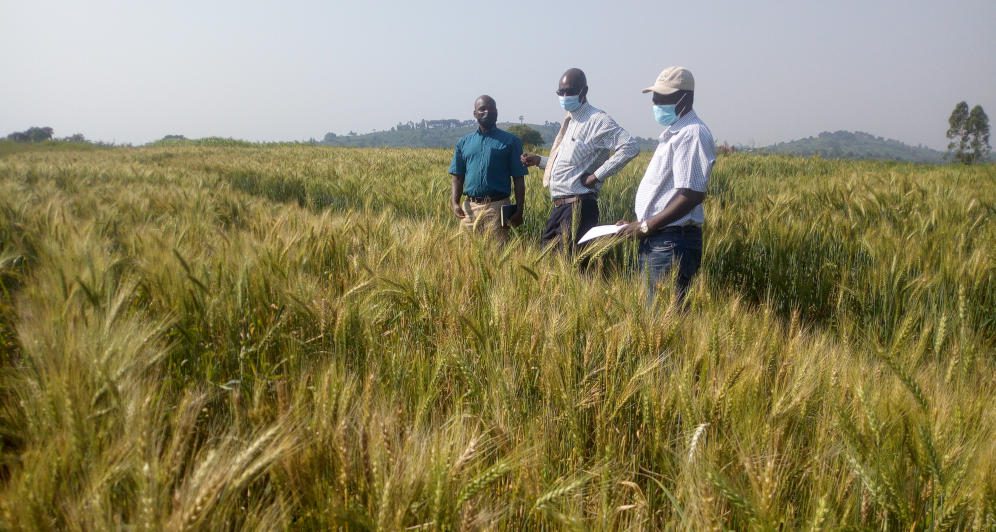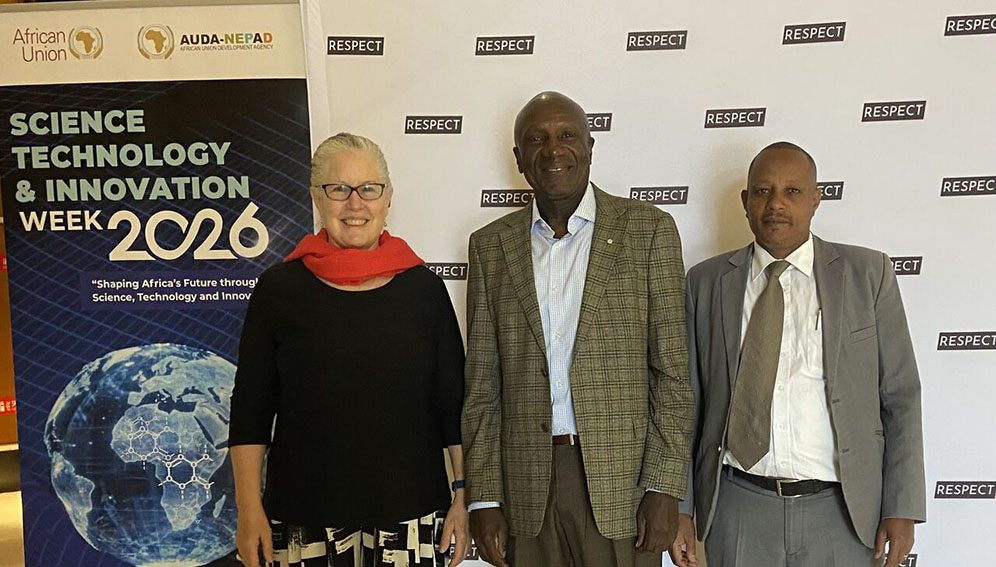SGCI News
New climate-resistant wheat varieties developed in Uganda will reduce reliance on foreign exports and support local food production, according to agricultural researchers. Across Sub-Saharan Africa, there is a growing demand…
New climate-resistant wheat varieties developed in Uganda will reduce reliance on foreign exports and support local food production, according to agricultural researchers.
Across Sub-Saharan Africa, there is a growing demand for wheat, but rising temperatures are putting yields increasingly at risk.
Uganda’s National Agricultural Research Organisation (NARO) is promoting and distributing two new seed varieties, resistant to wheat rust diseases as well as heat and drought stress, at farms across the country.
Bosco Chemayek, research team lead and head of wheat and barley breeding at NARO says the seeds can grow in previously unsuitable areas, making them ideal for Uganda’s diverse agro-ecology.
“The country has the potential to produce more than 60 per cent of wheat grain if the area under production can be expanded to the mid- and low-altitude environments through the use of heat-tolerant varieties,” Chemayek said.
According to NARO, Uganda’s wheat demand stands at 650,000 metric tonnes a year, but current production is only 25,000 metric tonnes.
The population’s shifting tastes and preferences have led to a sharp rise in the demand for wheat and wheat-derived goods and an increase in the nation’s dependency on wheat imports, valued at US$450 million.
To bridge this gap the NARO research team embarked in 2021 on a mission to develop new wheat varieties that can thrive in Uganda’s diverse climate.
“Introducing wheat in non-traditional areas, such as the mid- and low-altitude environments, is the best alternative to cut the huge imports,” Chemayek explained.
“However, these areas are characterised by heat and drought stress, wheat rust diseases (stem, leaf, and yellow rust), and lack of varieties adapted to these environments.”

The 18-month research project was funded by the Science Granting Councils Initiative (SGCI), an initiative that strengthens public scientific funding agencies in Sub-Saharan Africa to support research and evidence-based policies.
“We fast-tracked the development and release of widely adapted industry-preferred wheat varieties for a diversified agro-industry and to strengthen access and utilisation of quality wheat seed in Uganda,” Chemayek said, adding that the project’s success is a testament to the power of collaboration between researchers, farmers, and policymakers.
Chemayek said the SGCI supported the multi-location adaptation performance trials and pre-release seed bulking of candidate lines. Seed bulking involves the collection of promising seeds and growing them in a controlled environment.
Developing the seeds involved cross-breeding promising lines from the International Center for Agricultural Research in the Dry Areas and the International Maize and Wheat Improvement Center, Chemayek explains.
This was followed by adaptation trials for a number of seasons to determine their performance in the different environments found in Uganda.
Economic gains
Geoffrey Sempiri, SGCI project coordinator in Uganda, believes the project will help the country become less dependent on imports by increasing domestic wheat production, boosting economic development.
“Funding this project was very important and timely, so that Ugandan farmers can grow more wheat, translating into greater food security and reduced reliance on imported wheat,” he said.
“We had price hikes when the Russia-Ukraine war broke out because we heavily relied on wheat imports from Ukraine,” he added.
Sempiri stressed that the project’s impact extends beyond food security, with the potential to create jobs and stimulate economic growth.
He said local business owners, especially women and young people, can gain from a strong wheat value chain to grow their small businesses.
“We have many young Ugandan youth and women who have small street businesses making wheat-based food products like chapati and ‘rolex’ – a popular Ugandan snack with chapati, fried eggs, and vegetables rolled together,” Sempiri said.
The growth in demand for wheat brings job opportunities along the wheat value chain for farmers, millers, and bakers, according to agriculture analyst Omotunde Banjoko.
Banjoko is also confident that the initiative can enhance Africa’s wheat production and economy, reducing reliance on imports and increasing food security.
“A coordinated approach, including improved investment in research and development, infrastructure, and good agricultural extension practices, is critical to deepen and sustain results,” he said.
Article written By Funke Ishola
Related News
Building Africa’s science future: inside the SGCI alliance
As Phase 3 of the Science Granting Councils Initiative launches on the margins of the African Union Summit in Addis Ababa last week, the SGCI Alliance Chair explains why this moment marks a decisive turning point for African science. Cephas Adjei Mensah describes what is…
Open call: Support for science granting councils in Sub-Saharan Africa
The International Development Research Centre (IDRC), through the Science Granting Councils Initiative (SGCI), has launched a call for proposals to support science granting councils in Sub-Saharan Africa in the establishment and operationalisation of the Capacity Strengthening Hub under Phase III of the SGCI-3. The Hub…
SGCI phase 3: USD 42M boost for Africa’s STI agenda
It was an exhilarating moment as the Science Granting Councils Initiative (SGCI) Phase 3 funding announcement was officially made yesterday during the Science, Technology, and Innovation (STI) Week 2026, held in Addis Ababa, Ethiopia. The STI Week, organised by AUDA-NEPAD and the African Union and…
SGCI funded projects
Rwanda’s integrated approach to sustainable agriculture and nutrition
Project Titles & Institution Areas of Research Number of Projects being funded Project Duration Grant Amount In-Kind Distribution Council Collaboration with other councils





